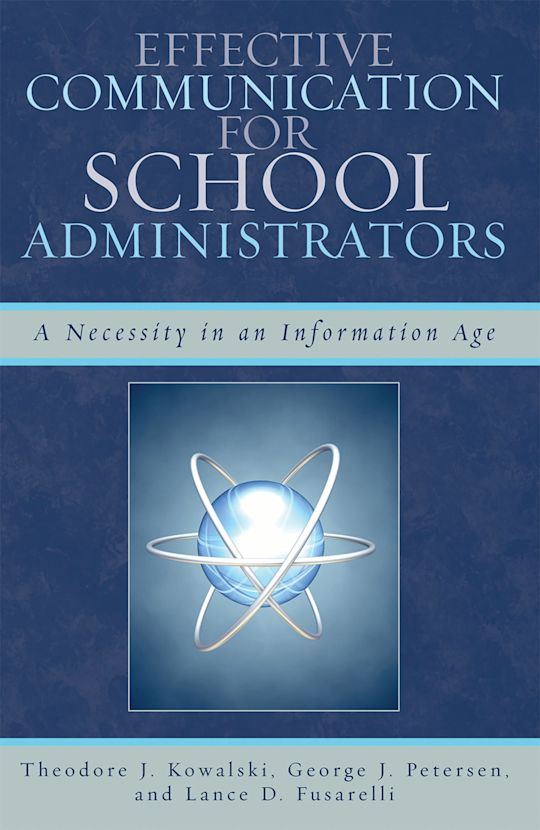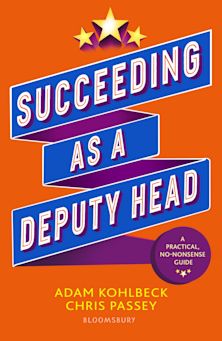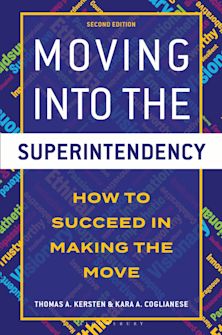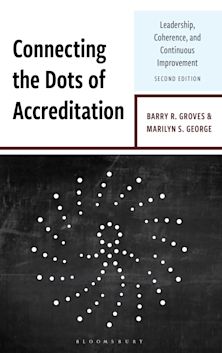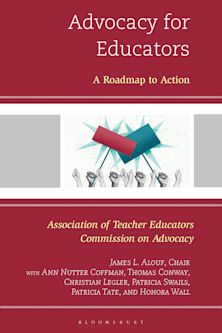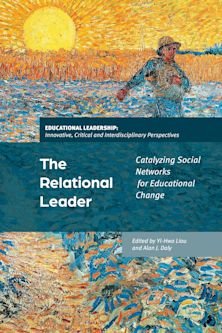- Home
- ACADEMIC
- Education
- Leadership and Management
- Effective Communication for School Administrators
Effective Communication for School Administrators
A Necessity in an Information Age
Effective Communication for School Administrators
A Necessity in an Information Age
This product is usually dispatched within 1 week
- Delivery and returns info
-
Free US delivery on orders $35 or over
You must sign in to add this item to your wishlist. Please sign in or create an account
Description
Reforming schools in an information-based society has made communication an even more crucial skill for district and school administrators. Although communication has been identified as an essential area of practice, it has largely been ignored in the study of school administration. In Effective Communication for School Administrators: A Necessity in an Information Age, Kowalski, Petersen, and Fusarelli blend research, theory, and practice as they examine the critical nature of communication in contemporary practice for administrators. Divided into two parts, this book examines relationships among communication, public relations, and school reform and addresses effective communicative behavior in learning organization, democratic leadership, organizational networks, conflict, positive relationships, and site-based management. Effective Communication for School Administrators is truly a unique text for education professionals and school administrators, as well as those wishing to communicate more successfully.
Table of Contents
Chapter 2 Seeking Reform in an Information-Based Society
Chapter 3 Public Relations in Districts and Schools
Chapter 4 Effective Communication: The Nucleus of School Public Relations
Chapter 5 School Reform and Effective Administrator Communication
Chapter 6 Communicative Competence in School Administration
Part 7 APPLICATIONS
Chapter 8 Communication and the Learning Organization
Chapter 9 Democratic Leadership and Communication
Chapter 10 Communication Networks
Chapter 11 Managing Conflict
Chapter 12 Maintaining Positive Relationships
Chapter 13 School-Based Management and Communication
Product details
| Published | Mar 15 2007 |
|---|---|
| Format | Hardback |
| Edition | 1st |
| Extent | 254 |
| ISBN | 9781578865871 |
| Imprint | R&L Education |
| Dimensions | 9 x 6 inches |
| Publisher | Bloomsbury Publishing |
About the contributors
Reviews
-
Improved leadership, implementation, and achievement in education all require good communication: citizens to schools, administrators with teachers, and teachers with children. This important book explains and illustrates in the 'information age' just howto get the word out: the what, to what ends, using what means (including the latest theories & technologies), all for the benefit of education and society....
Bruce S. Cooper, PhD, emeritus professor and vice chair, Division of Administration, Policy and Urban Education, Fordham University
-
Kowalski et al. consider the importance of communication for school administrators. They argue that effective communication is linked to effective reform and discuss communication in connection with public relations and school reform, as well as organizational improvement and culture change. They consider it in the context of an information-based and reform -minded society and detail applications of relational communication: making a school a learning organization, practicing democratic leadership, and performing critical tasks such as visioning and planning, managing conflict, building positive relationships, and working with school councils. This book is for courses taken by aspiring and practicing school administrators.
Reference and Research Book News
-
No doubt, communication has always been essential to educational leaders. But the unique combination of factors in which contemporary leaders find themselves-an information age, a reform and accountability arena, and learning communities-makes developing communication skills more critical than ever. Kowalski, Petersen, and Fusarelli have created a research-based and practical text that acknowledges these unique contexts and provides an excellent resource for superintendents, principals, and other school leaders for integrating effective communication in their work.
Gary M. Crow, professor and chair, Department of Educational Leadership and Policy, Florida State University, Tallahassee
-
Improved leadership, implementation, and achievement in education all require good communication: citizens to schools, administrators with teachers, and teachers with children. This important book explains and illustrates in the 'information age' just how to get the word out: the what, to what ends, using what means (including the latest theories & technologies), all for the benefit of education and society.
Bruce S. Cooper, PhD, emeritus professor and vice chair, Division of Administration, Policy and Urban Education, Fordham University









